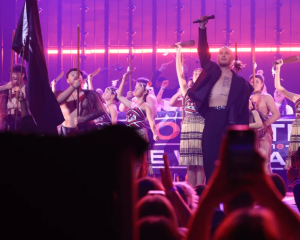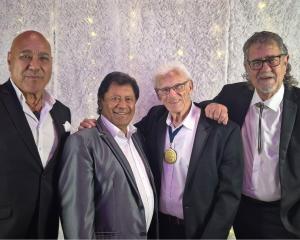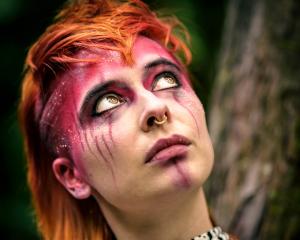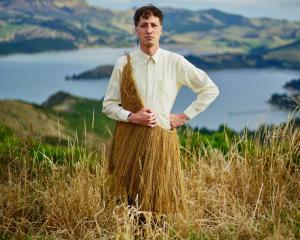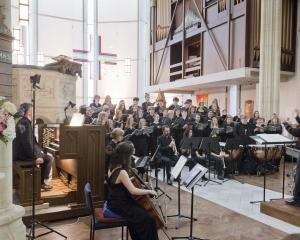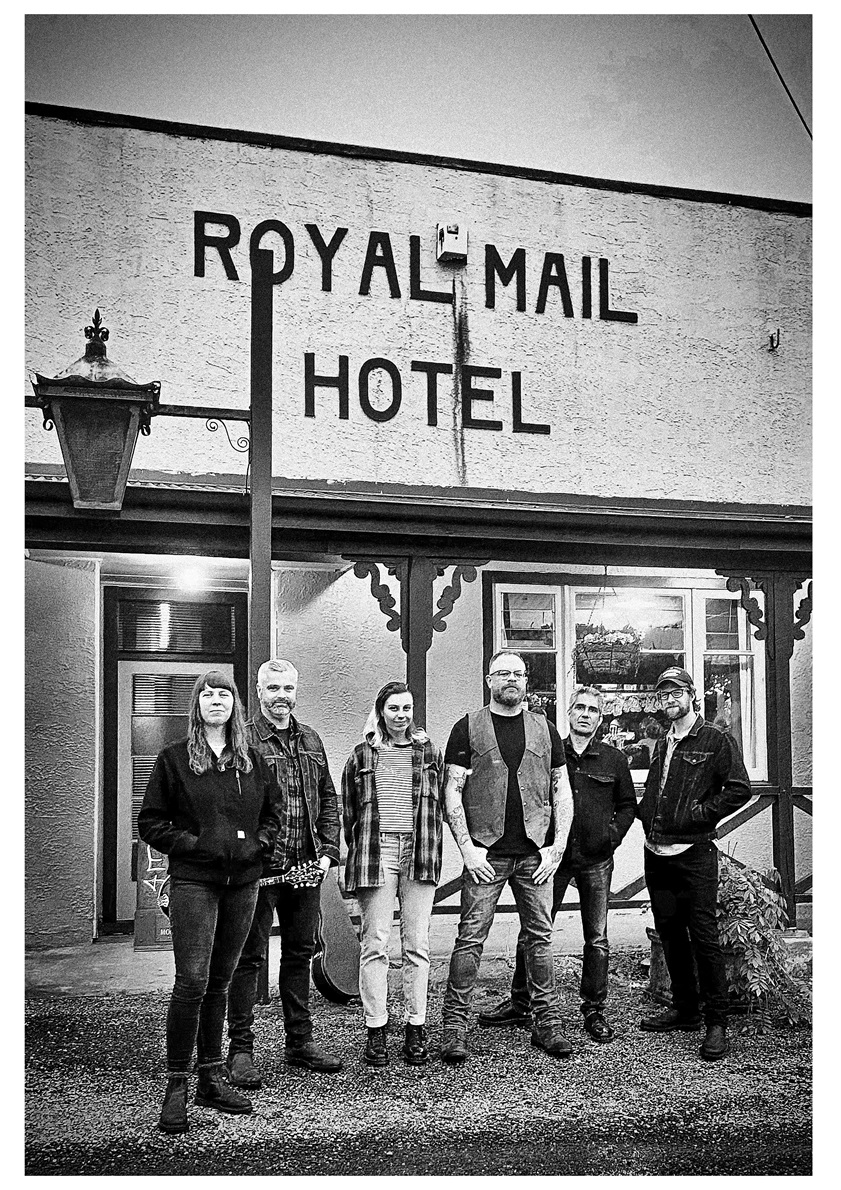
At the first attempt to talk to Adam McGrath, the musician makes his apologies, sincerely, but he has to fly. Literally. The flight was delayed but now it’s departing.
So, the call is rescheduled. The following day finds more success, but McGrath still sounds a little pushed for time, like his bus or his train might arrive at any moment, and he’ll need to go.
This despite his assessment that he’s not touring just now.
"Well, I’m always sort of touring," he clarifies. "I never really stop."
Some bands, he says, they’ll tour for a week or two, before taking a break. Then, perhaps in a few months or a year, they’ll head out again.
"I just sort of am always going places," the Christchurch born and raised, and still domiciled, McGrath says.
It means his schedule, as recently, while not on tour, might involve playing Christchurch on Friday, Auckland on Saturday and Wellington on Sunday.
"And that’s sort of my general week, you know, doing stuff like that. But it’s just one long, endless thing. It’s been that way for nearly 20 years."
McGrath, not surprisingly, attracts plaudits for being among the country’s hardest working musicians. Alongside testimonials for authenticity, veracity, perspicacity.
Sharing the spotlight, the work ethic and commendations are his folk-punk, country-roots band The Eastern, who will next Saturday play Ōtepoti as part of the Dunedin Arts Festival.
In the recent past, McGrath has been reinforcing his credentials as a solo performer, including with the album Dear Companions — a project that, typically, combined big-hearted songs with a generous purpose. It raised money for a sick friend. But The Eastern, with whom he’s recorded three critically and popularly embraced albums, has remained a constant.
"It goes all kind of back and forth. The solo gigs are different than The Eastern. You know, I tell stories," McGrath says.
Not that he doesn’t tell stories when he’s playing with the Eastern — both in the songs and between them.
Indeed, there’s a late-night hoarseness to McGrath’s voice, over the phoneline, perhaps from telling one too many, over the noise of a crowded bar, past closing.
Precisely who we might see at The Eastern’s arts festival gig and what they might sing remains to be seen. McGrath thinks a lineup of five or six is likely, drawn from the wider Eastern family of perhaps 20 players in all.
There will be a couple of banjos.
"Sharp and strong and cutting and, yeah, nothing to be afraid of there," he says of the sometimes maligned but undeniably storied instrument.
A double bass and guitars are near guaranteed.
"We don’t have any drums, but we still sort of roar, so that’s pretty good. We feel pretty blessed with that."
And the songs?
"Well, the thing with us is that we never have a set list. We never know what we’re going to play until we’re in the moment like that, and that’s just the way it is, and that’s pretty much been the whole go."
Songs have their own magic, he says, and each has a different job to do.
"So when we deploy our songs, we deploy them for whatever we think is appropriate at the time."
McGrath has previously listed the sorts of songs that populate The Eastern’s oeuvre. A representative sample includes drinking songs, train songs, fight songs, hope songs, the odd cowboy song, the stand on the table songs, the keep the faith songs, the faith’s got rocked songs, the hang in there songs, I’m sorry songs, the don’t quit songs, take this job and shove it songs, Irish songs, punk songs, soul songs, the get the money songs, the give the money songs, and the love everlasting songs. Among others.
Music is the great sender, he says.
"It sends stuff into us and through us and then into the next person, and that’s its wonder."
It’s about the audience.
"We work for them. They pay to get in, so we’re there for them," he says.
"Whatever we do, whether it’s an arts festival or a hall or a backyard or a pub or wherever it is, you know what I mean?
"We want to make people leave and feel like we were committed to them ... And we were in it together, whatever roof was raised."
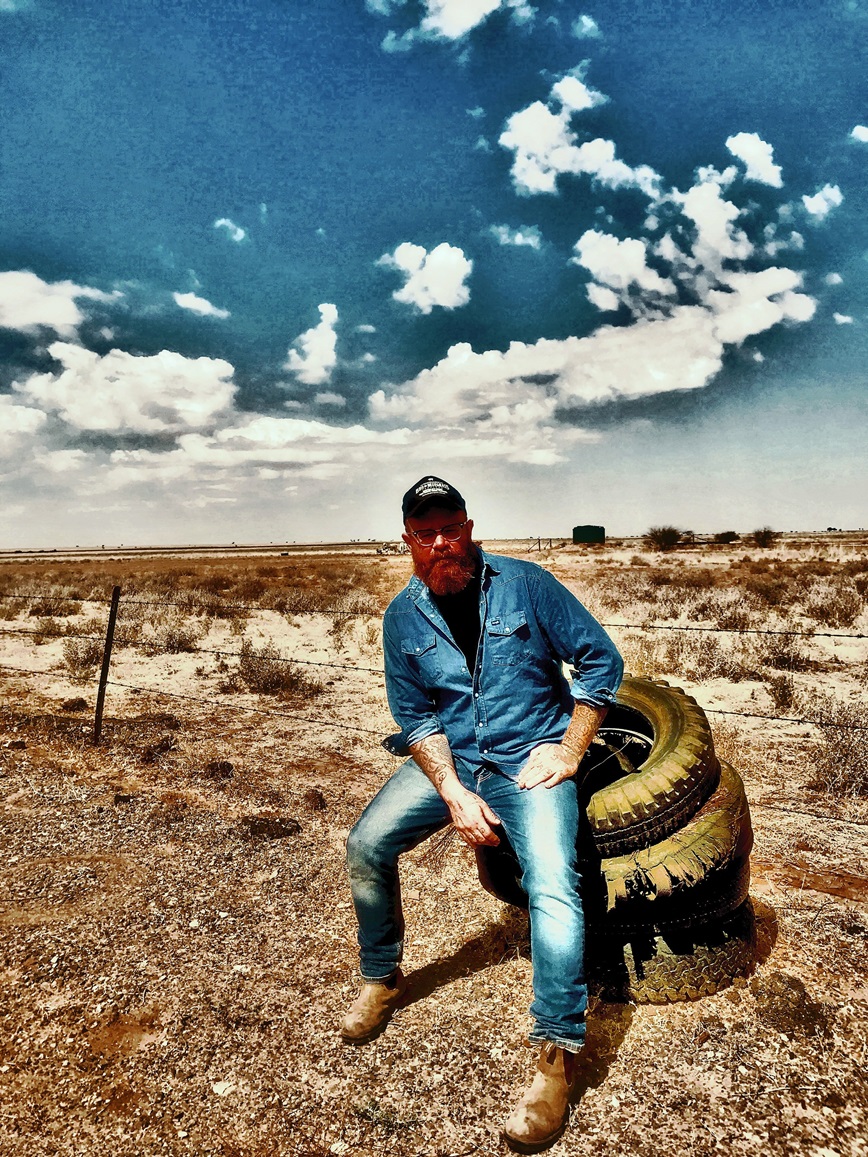
"That’s my job. I’m a folk singer. That’s what we do," he says.
"I take the work seriously, but not myself. And I want to speak to things. I want to speak to the things I see out in the world."
He likes to pick things up and put them down somewhere else, he says. Hear something in Christchurch and take it to Hawke’s Bay, then on to Taranaki.
"I’ll take it up there and then I’ll go to Australia and so on and so on. And you sort of start to find that people can connect in all kinds of different ways. And especially nowadays, I think that’s really important."
Nowadays, well Aotearoa New Zealand seems to be just about holding its own, he says — before fact-checking himself to note that the voices of populism are barking a little more loudly in government.
But McGrath’s not so sure about the bigger picture, the wider world.
"Yeah, it’s scary. It feels a little bit like Weimar Germany, you know what I mean, in certain places, things that people are saying.
"And so, yeah, that does make me afraid, but it also makes me eager to get into it."
It’s a moment in which to let people know they can be empowered, he says. "Don’t despair. Don’t be disheartened."
He’s happy that the three, four, five-minute song can make a contribution to our time, as always.
"It’s really direct, man. It’s really direct. It’s very potent and it always has been and I’m sure it always will be."
Regardless of genre, it can get straight to the point, quickly, he says.
"And they travel easy, you know? They’re ideas that travel quickly and can make a direct connection, you know? And I think through music, people are open to hearing things, you know, they’re open to feeling things."
That was his own experience, that music opened his eyes and ears to possibilities.
"You know, when I first heard Woody Guthrie and he said, you know, ‘some will rob you with a six gun and some with a fountain pen’, you know, that’s some pretty deep s***, you know? But it’s really sharp and it’s really direct.
"When I heard The Clash, you know what I mean? And what are they singing about? I was in high school and I was working in a plastics factory. And that seemed to be where I was heading. And I’m listening to The Clash and it said, ‘the men at the factory are old and cunning, stop wasting your time’, ‘boy, get running’, ‘it’s the best years of your life they want to steal’. You know, you just think."
Those sorts of songs opened doors in his brain, he says, letting the air in.
In his own work he remains inspired by words, ideas, stories, the world as he finds it. Just now that means working on a project of songs for the Maritime Union. They’ll be based on conversations he’s having and stories he’s heard, things he’s read related to the union.
"That gives me a sort of a form to head to."
Set the stories to three chords and you’re away.
"I’ve been doing this 20 years and I’m almost at my fourth chord, so, you know, the world is infinite at this point," he says with a chuckle
The project will produce an album of new songs, focused on the union’s struggles.
"I think unions and the idea of solidarity is very important and one that I think can help people if they are informed about it."
It’s another expression of the sense of community that runs through McGrath’s work and is hardwired into The Eastern.
It’s central to the experience of coming together to play or listen to music, he says.
"And, you know, especially if you care about people and you care about people who are slightly down the ladder, we need each other, and I think that’s a message we have to keep selling, you know what I mean? Because the destroyers and the destructors, they’re trying to tell us the opposite, you know, but we don’t need to accept that."
It’s work, singing and storytelling, that McGrath intends to keep doing.
"Oh yeah, because I’m so grateful, man. I’m so grateful that I get to do it. I always feel like there’s been some kind of cosmic mistake and that I just got called, and it was actually meant to be Aaron McGrath, not Adam McGrath, and it’s been a bit of an accident.
"At any moment, I’m going to get a phone call from the folk police, and they’re going to go like, no, sorry, it was the wrong guy. You’ve got to go back to work, you know? And so every day away from a day job, I’m very grateful for."
The gig
• The Eastern plays Errick’s, with L'il Chuck, as part of Dunedin Arts Festival next Saturday, April 5.

